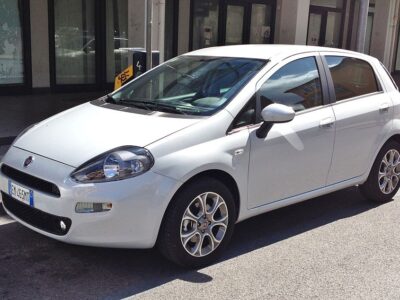
Fiat Punto ECU and Electrical Problems: Troubleshooting Guide
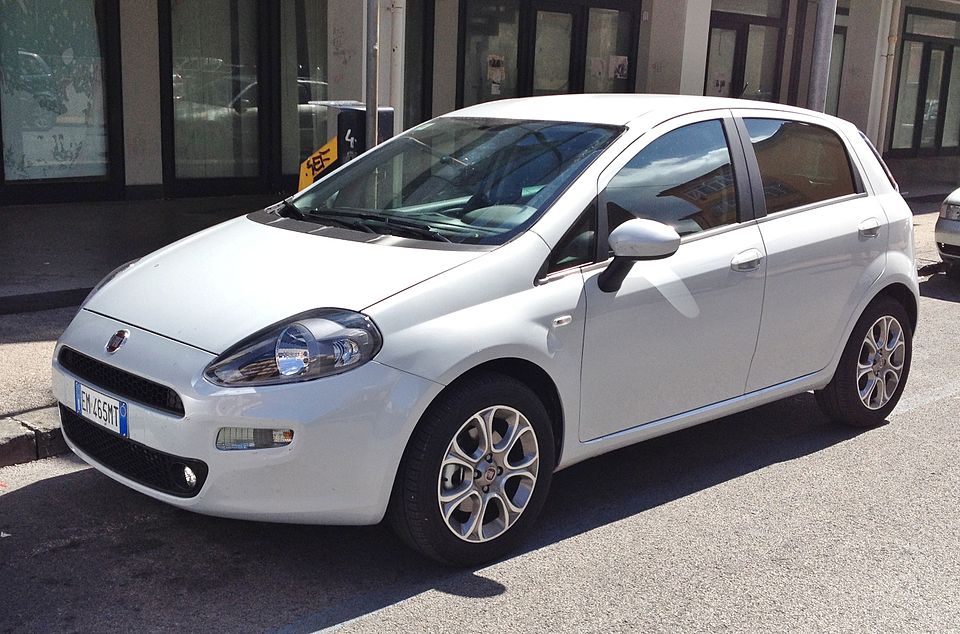
The Fiat Punto is a popular supermini car known for its reliability and performance. However, like any vehicle, it can be prone to electrical issues, particularly with its Engine Control Unit (ECU). The ECU plays a vital role in managing the engine's functions, and any malfunction can lead to a range of problems. This guide provides a comprehensive troubleshooting approach to identifying and potentially fixing ECU and other electrical issues in the Fiat Punto, helping owners diagnose and repair common faults to get their vehicle running smoothly again. Regular maintenance is key.
Fiat Punto ECU and Electrical Problems: Identifying the Root Cause
The Fiat Punto's Engine Control Unit (ECU) is a complex system that controls various aspects of the vehicle's performance, including engine management, transmission, and emissions. When electrical problems arise, it can be challenging to diagnose the issue, as the ECU is interconnected with numerous other systems. To effectively troubleshoot ECU and electrical problems in the Fiat Punto, it's essential to understand the underlying causes and identify the root of the issue.
ECU Failure Symptoms and Warning Signs
When the ECU fails or malfunctions, it can manifest in various ways, including erratic engine behavior, decreased performance, and warning lights on the dashboard. Some common symptoms of ECU failure include difficulty starting the engine, stalling or hesitation during acceleration, and unusual or unexplained warning lights on the instrument cluster. In some cases, the ECU may enter a limp mode, limiting engine performance to prevent further damage.
| Symptom | Possible Cause |
|---|---|
| Difficulty starting the engine | Faulty crankshaft or camshaft sensor, low battery voltage |
| Stalling or hesitation during acceleration | Faulty throttle position sensor, clogged fuel filter |
Common Electrical Problems and Causes
Electrical problems in the Fiat Punto can be caused by a variety of factors, including corrosion or damage to wiring, faulty or failing electrical components, and software issues within the ECU. Some common electrical problems include malfunctioning lights, faulty wipers, and issues with the vehicle's audio or infotainment system. To diagnose these issues, it's essential to check the wiring and connections for signs of damage or corrosion.
| Electrical Problem | Possible Cause |
|---|---|
| Malfunctioning lights | Faulty bulb or socket, wiring damage or corrosion |
| Faulty wipers | Faulty wiper motor or linkage, wiring damage or corrosion |
Troubleshooting Steps and Precautions
When troubleshooting ECU and electrical problems in the Fiat Punto, it's essential to follow a systematic approach to identify the root cause of the issue. This includes consulting the vehicle's repair manual, checking for any software updates or recalls, and using specialized diagnostic tools to monitor the ECU's performance. Additionally, it's crucial to take necessary precautions when working with electrical systems, including disconnecting the battery before performing any repairs.
| Troubleshooting Step | Purpose |
|---|---|
| Consulting the repair manual | Understand the ECU's system and wiring diagrams |
| Checking for software updates or recalls | Ensure the ECU is running the latest software |
Why is my Fiat Punto not starting?

There are several reasons why your Fiat Punto may not be starting. The issue could be related to the battery, starter motor, ignition system, or fuel system. To diagnose the problem, it's essential to consider the symptoms and any recent maintenance or repairs.
Battery and Electrical System Issues
A dead battery or electrical system issues can prevent the Fiat Punto from starting. Check the battery condition, age, and charge level. If the battery is old or weak, it may not hold a charge.
- Check the battery terminals for corrosion or loose connections.
- Test the battery voltage using a multimeter.
- Consider replacing the battery if it's old or weak.
Starter Motor and Ignition System Problems
The starter motor and ignition system play a crucial role in starting the engine. If the starter motor is faulty or the ignition system is malfunctioning, the engine won't start.
You may be interested in reading How to Replace the Clutch in a Fiat Punto
How to Replace the Clutch in a Fiat Punto- Check the starter motor for any signs of wear or damage.
- Test the ignition switch and wiring for any faults or damage.
- Consider replacing the starter motor or ignition switch if necessary.
Fuel System Issues
Fuel system problems can also prevent the Fiat Punto from starting. Check the fuel level, fuel filter, and fuel pump. If the fuel filter is clogged or the fuel pump is faulty, the engine won't receive the necessary fuel to start.
- Check the fuel level and add fuel if necessary.
- Inspect the fuel filter for any blockages or damage.
- Test the fuel pump for any faults or damage.
What is the engine life of a Fiat Punto?

The engine life of a Fiat Punto is a topic of interest for many potential buyers and current owners of the vehicle. The lifespan of the engine depends on various factors such as maintenance, driving conditions, and model year. Generally, a well-maintained Fiat Punto engine can last for a considerable amount of time.
Factors Affecting Engine Life
The engine life of a Fiat Punto is influenced by several factors. Regular maintenance is crucial to extend the life of the engine. This includes regular oil changes, filter replacements, and timely repairs. Driving conditions also play a significant role, as frequent city driving or extreme temperatures can affect the engine's longevity.
- Regular maintenance schedules
- Driving habits and conditions
- Quality of fuel used
Common Issues Affecting Engine Life
Some common issues can affect the engine life of a Fiat Punto. These include oil leaks, faulty sensors, and worn-out engine components. Addressing these issues promptly can help prevent major problems.
- Oil leaks due to worn-out gaskets or seals
- Faulty sensors causing engine performance issues
- Worn-out engine components such as piston rings or cylinder liners
Tips for Extending Engine Life
To extend the engine life of a Fiat Punto, owners can follow certain tips. Regular servicing, gentle driving, and monitoring engine performance can help identify potential issues early on.
- Following the recommended maintenance schedule
- Avoiding extreme driving conditions
- Using high-quality fuel and lubricants
Why was the Fiat Punto discontinued?

The Fiat Punto was discontinued due to a combination of factors. The main reason was the declining sales of the model, which had been a bestseller for Fiat in the 1990s and early 2000s. As the market moved towards more modern and technologically advanced vehicles, the Punto struggled to keep up, and its sales gradually decreased.
Reasons for Declining Sales
The decline in sales of the Fiat Punto can be attributed to several factors. The increasing competition in the supermini segment, coupled with the rise of newer models with more advanced features, made it challenging for the Punto to remain competitive. Some of the key factors that contributed to this decline include:
You may be interested in reading How to Replace the Clutch in a Fiat Punto
How to Replace the Clutch in a Fiat Punto Fixing Interior Trim Problems in the Fiat Punto
Fixing Interior Trim Problems in the Fiat Punto- The Punto's outdated design and lack of modern features, which made it less appealing to younger buyers.
- The increasing popularity of SUVs and crossover vehicles, which drew buyers away from traditional superminis like the Punto.
- The Punto's relatively high price compared to its competitors, which made it less attractive to budget-conscious buyers.
Impact of Emissions Regulations
The implementation of stricter emissions regulations also played a role in the discontinuation of the Fiat Punto. As governments around the world introduced tougher emissions standards, Fiat faced significant costs in updating the Punto to comply with these regulations. The cost of implementing these updates, combined with the declining sales of the model, made it economically unviable to continue production. Some of the key emissions regulations that affected the Punto include:
- The introduction of Euro 6 emissions standards in Europe, which required significant updates to the Punto's engine and emissions systems.
- The increasing complexity and cost of implementing emissions-reducing technologies, such as particulate filters and selective catalytic reduction systems.
- The need to invest in new engine development and testing to ensure compliance with the latest emissions regulations.
Shift in Fiat's Product Strategy
The discontinuation of the Fiat Punto was also part of a broader shift in Fiat's product strategy. The company has been focusing on expanding its presence in the SUV and crossover segments, which are seen as more profitable and growth-oriented. By discontinuing the Punto and other models, Fiat has been able to redirect resources towards the development of new SUVs and crossovers. Some of the key elements of this shift include:
- The introduction of new SUV models, such as the Fiat 500X and the Fiat Argo.
- The expansion of Fiat's presence in emerging markets, where SUVs and crossovers are particularly popular.
- The development of new technologies and platforms to support the growth of Fiat's SUV and crossover offerings.
What problems does Fiat Punto have?
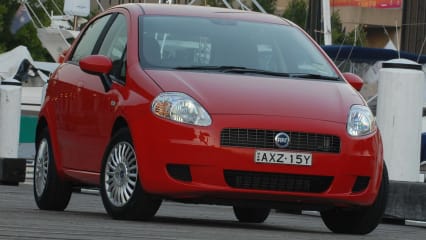
The Fiat Punto is a supermini car that was produced by the Italian manufacturer Fiat from 1993 to 2018. Over the years, various model generations have been released, and while it has been a popular choice among car buyers, it has also been associated with several problems.
Reliability Issues
The Fiat Punto has been known to have reliability issues, particularly with its electrical systems and engine. Some owners have reported problems with the car's electronics, such as faulty sensors, malfunctioning infotainment systems, and issues with the car's computer. These problems can be frustrating and costly to repair.
- Faulty sensors can cause issues with the car's engine and safety features.
- Malfunctioning infotainment systems can be a nuisance for drivers who rely on these systems for navigation and entertainment.
- Issues with the car's computer can lead to problems with the car's performance and overall reliability.
Engine and Transmission Problems
The Fiat Punto has also been associated with engine and transmission problems. Some owners have reported issues with the car's engine, such as excessive oil consumption, overheating, and premature wear on engine components. Additionally, some models have been known to have transmission problems, including slipping and hesitation.
- Excessive oil consumption can lead to increased maintenance costs and potentially cause engine damage.
- Overheating can cause serious damage to the engine and other components.
- Premature wear on engine components can lead to costly repairs and potentially cause the car to break down.
Safety Concerns
The Fiat Punto has also been associated with some safety concerns. Some owners have reported issues with the car's airbags, anti-lock braking system (ABS), and electronic stability control (ESC). Additionally, some models have been recalled due to safety concerns, such as the risk of fire or loss of steering control.
- Issues with the car's airbags can compromise the safety of occupants in the event of a collision.
- Problems with the ABS and ESC can increase the risk of accidents, particularly in slippery or hazardous driving conditions.
- Recalls due to safety concerns can be a significant inconvenience for owners and may indicate a more serious underlying problem.
Frequently Asked Questions
What are the common symptoms of ECU problems in Fiat Punto?
Common symptoms include erratic engine behavior, difficulty starting the engine, and warning lights on the dashboard. The car's performance may also be affected, leading to reduced fuel efficiency and power output. In some cases, the engine may stall or fail to restart. These symptoms can be intermittent or persistent, and it's essential to diagnose the issue promptly to avoid further damage.
How do I troubleshoot electrical problems in my Fiat Punto?
To troubleshoot electrical problems, start by checking the battery and charging system. Ensure the battery terminals are clean and secure, and the alternator is functioning correctly. Use a multimeter to measure voltage and current. Consult the wiring diagram to identify potential problem areas. Check for signs of wear, corrosion, or damage on electrical components and wiring. This will help you identify the root cause of the issue.
You may be interested in reading How to Replace the Clutch in a Fiat Punto
How to Replace the Clutch in a Fiat Punto Fixing Interior Trim Problems in the Fiat Punto
Fixing Interior Trim Problems in the Fiat Punto Resolving Fiat Punto Air Conditioning Malfunctions
Resolving Fiat Punto Air Conditioning MalfunctionsCan a faulty ECU cause engine performance issues in Fiat Punto?
A faulty ECU can significantly impact engine performance in Fiat Punto. The ECU controls critical engine functions, such as fuel injection and ignition timing. If the ECU is malfunctioning, it can lead to poor engine performance, reduced power output, and decreased fuel efficiency. In some cases, a faulty ECU can cause the engine to stall or fail to start. It's crucial to diagnose and repair or replace the ECU to restore optimal engine performance.
How do I reset the ECU on my Fiat Punto?
To reset the ECU, disconnect the battery negative terminal for a few minutes. This will clear any stored fault codes and allow the ECU to reset. Reconnect the battery and start the engine. The ECU will relearn its settings as you drive. However, if the underlying issue persists, the problem may recur. It's recommended to diagnose and address the root cause rather than simply resetting the ECU.
If you want to know other articles similar to Fiat Punto ECU and Electrical Problems: Troubleshooting Guide you can visit the category Fiat Punto.
Leave a Reply

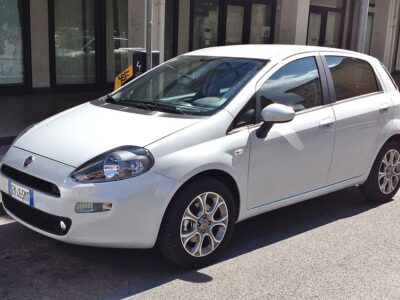
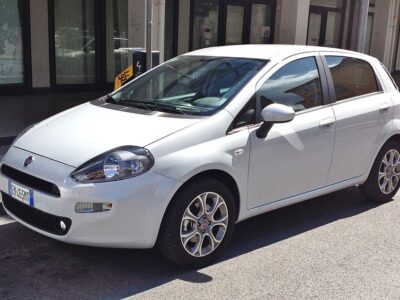



More content of your interest